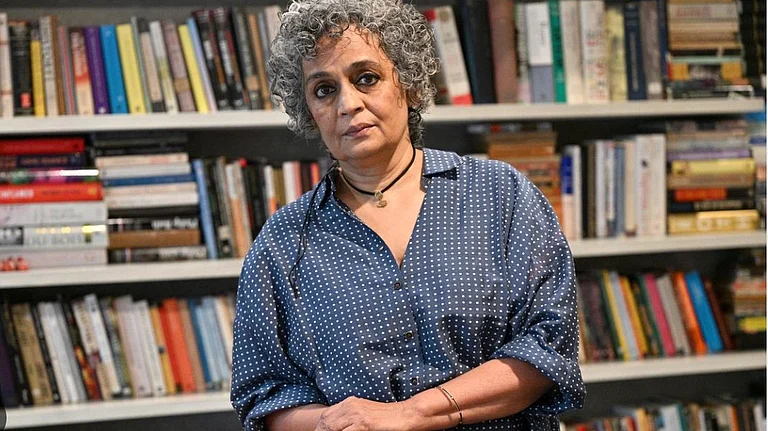The Indian stock market has been having an exciting year with IPO listing of new-age companies like Zomato, Nykaa, and Paytm, while MobiKwik, PolicyBazaar, and more are on the cards. One remarkable feature of these new-age IPOs, so far, was the desire of the early-stage investors’ to partially, or fully, exit these no-profit, or low-profit, companies. Another, equally outstanding, trait was the lapping up of shares by mutual funds and retail investors.
Profitable exit from an unprofitable company is a recurring theme in the relation between rich family offices, private equity firms and public offers, post-pandemic. Large OFS begs attention to the question that if these new age companies offer high hope and huge potential in future then why are these early-stage investors selling their shares in these Unicorns?
While capital market veterans feel perplexed at the sky-rocketing valuations of IPOs of companies that have never made profits, the early-stage investors of such new-age IPOs are laughing their way to the bank.
Initial Public Offering (IPO) of any company consists of two parts: One is fresh issuance of shares by the company and second is OFS where early stage investors or company promoters sell their shares, encashing the risk and pains they took in raising and developing the company. A large part of fresh issuance of shares is made when companies have large working capital requirements that cannot be met by internal cash flow generation through operations and early investors’ reluctance to infuse more equity.
The entry of over a million new retail investors every month since April 2020 coupled with deleveraging of debts by companies has invigorated the market to scale astonishing heights, all thanks to the buoyancy in Indian equity markets. It has also ushered a golden period of lucrative exit opportunities for the early-stage investors of loss-making or merely-profitable unicorns.
Year to date, approximately 62 percent of all IPO money was OFS where existing investors and promoters sold their shares to retail public and mutual funds. According to Value
Research data, year to date, 49 IPOs had raised Rs 1,01,053 crore, of which Rs 62,077 crore was OFS. Out of the 49 IPOs that have come so far, 11 IPOs were complete OFS, and 26 IPOs had 70 per cent of the OFS. In the last calendar year, there were just 3 IPOs out of 16 that had a complete OFS portion.
So, why are so many IPOs predominantly raising money through OFS, suddenly? And does it even matter how companies are raising money- be it Fresh Issuance or OFS? While it does not really make any difference for the company itself, it does matter to the promoters and early-stage investors who want to encash the stock market frenzy.
Take the case of Nykaa that got listed this week.
Nykaa IPO raised Rs 5,350 crores for its parent company FSN E-Commerce Ventures Limited through which early stage investors sold shares worth Rs 4,720 crores to retail investors, mutual funds and other financial institutions.
The early stage investors of Nykaa are primarily rich family offices and HNIs, including the Sanjay Nayar Family Trust, the family of both Sanjay and Falguni Nayar. Sanjay, a former CEO of Citigroup’s Indian operations, is currently the chairman of the Indian arm of the global private equity giant KKR.
Over 88 percent of the IPO was OFS, fresh issue of shares in the Nykaa IPO was less than 12 per cent which indicated that the company’s IPO was primarily aimed at providing an exit route to early stage investors.
The Promoter, Sanjay Nayar Family Trust sold 48 lakh shares through OFS route in this IPO. At an offer price of Rs 1,125 a share, the trust made an exit worth Rs 540 crore. After the IPO the trust’s holding came down to 10.58 crore from 11.06 crore and it still holds 22.4 percent of Nykaa.
Similarly, a few other early stage investors like TPG Growth IV fund made a partial exit by offering 54.21 lakh shares, Lighthouse India Fund III sold 48.44 lakh shares, Yogesh Agencies and Investments Pvt Ltd sold 25.38 lakh shares and JM Financials and Investment sold 9.14 lakh shares.
A few HNIs too made a killing on the back of the IPO frenzy. Harinder Singh Banga jointly with Indra Banga sold 1.02 crore shares and Sunil Kant Munjal sold 70.5 lakh shares under OFS route.
With a paltry 62 Crores profit the current market capitalization of Nykaa is over 1 lakh crore while with 2,000 percent more profits than Nykaa, FMCG giant ITC’s market cap is merely three times that of the e-commerce cosmetic seller.
Large scale selling of Nykaa shares by early investors on the backdrop of high market capitalization provided by overly optimistic investors is baffling many market veterans.
As per a Tweet by Nikhil Kamath, Co-founder of brokerage firm Zerodha: “Nykaa lists at 1600 times price to earnings…best thing for a value stock investor might be to go on a really long holiday right about now.”
Speaking with Outlook Money, Hemang Jani, Head of Equity Strategy, Broking and Distribution, Motilal Oswal Financial Services viewed that the substantial valuation received by such IPOs, this year, reflects on the growing appetite of the retail investor to be part of new age growth companies.
“IPO now stands for ‘Its Probably Overpriced’ and there is not much left for retail unless they hold it for a decade or so,” he said.


























